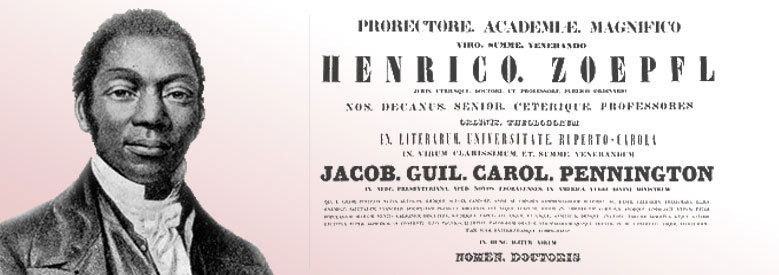(Receive our blog posts in your email by clicking here. If the author links in this post are broken, please visit our Free PDF Library and click on the author’s page directly.)
Amos Beman was a prominent African-American abolitionist and minister, as well as a close friend of James W.C. Pennington. Pennington, a former slave — “the fugitive blacksmith” — went on himself to become a prominent Presbyterian minister, as well as the first African-American to receive a Doctor of Divinity degree in Europe. One of his biographers, Christopher L. Webber, in American to the Backbone: The Life of James W.C. Pennington, the Fugitive Slave Who Became One of the First Black Abolitionists, pp. 441-442, tells of Beman’s poetic tribute to his friend, which is a remarkable memorial to a godly man.
The poem raises a puzzle that is at present unsolved. What abbreviation “C” in Pennington’s name stand for? As Webber tells us, he was born as James Pembroke. In the autobiographical The Fugitive Blacksmith, we are told of a name change to James W.C. Pennington, but we are not told why. The obvious inference is that a name change would be helpful to a fugitive slave. But what do to the abbreviations stand for? That Pennington does not explain. We have no writings by him that provide full names without abbreviations in his own hand. The degree given to him at Heidelberg University does give a full name (in Latin) of James William Charles Pennington. Some have speculated that “W” would stand for William Wright, who first harbored the escaped slave. No suggestion has been offered for name “Charles.” Amos Beman, however, uses “Cox” in the acrostic below, thinking, perhaps, of the Rev. Samuel H. Cox, “the man who welcomed [Pennington] into the Christian Church.” In any case, Beman’s tribute is a noble attempt to answer the age-old question, “What’s in a name?”
REV, J.W.C. PENNINGTON
J ustified by wisdom’s high behest
A slave no more—a man confessed—
M any have read from thy eloquent pen,
E nnobling thoughts for the freedom of men.
S till upward and onward is thy way.
W hich thousands admire, blessing God for the day
I n which you have toiled, so nobly and true—
L ike Garnet and Douglass, and Delaney, too—
L ifting the bondman from darkness and death—
I nvesting him with rights—inspiring him with breath,
A nd sending him forward in virtue’s career,
M ajestic and noble, divested of fear.
C ontinue then faithful and true to the end;
O n God you rely—He is strong to defend.
X ylographican skill let others unfold.
P resent thou thy record to ages untold,
E mblazoned with the deeds of light and love;
N one will deny thee a mansion above.
N ow awaiting to crown thee in thy new field,
I n heart and in hope as your power you wield,
N ew honors shall deck thee as in distant lands,
G iving thee joy amid the work of thy hands.
T o heaven we commend thee in all the way
O n which thou goest from home far away—
N one can more warmly adieu to thee say.


